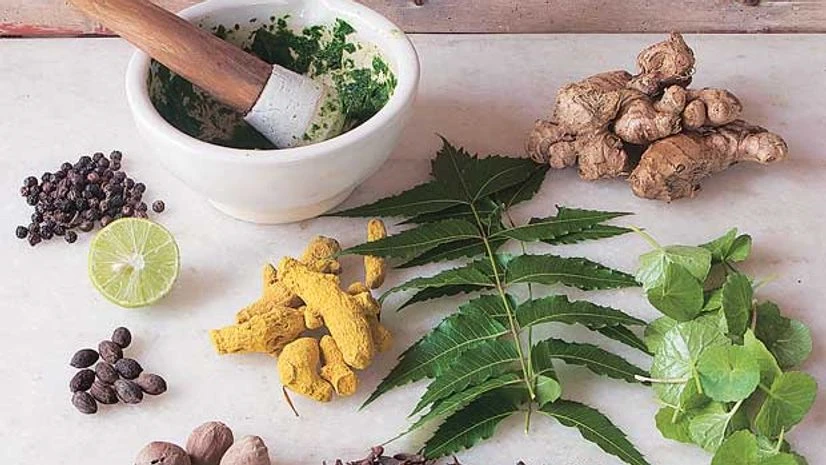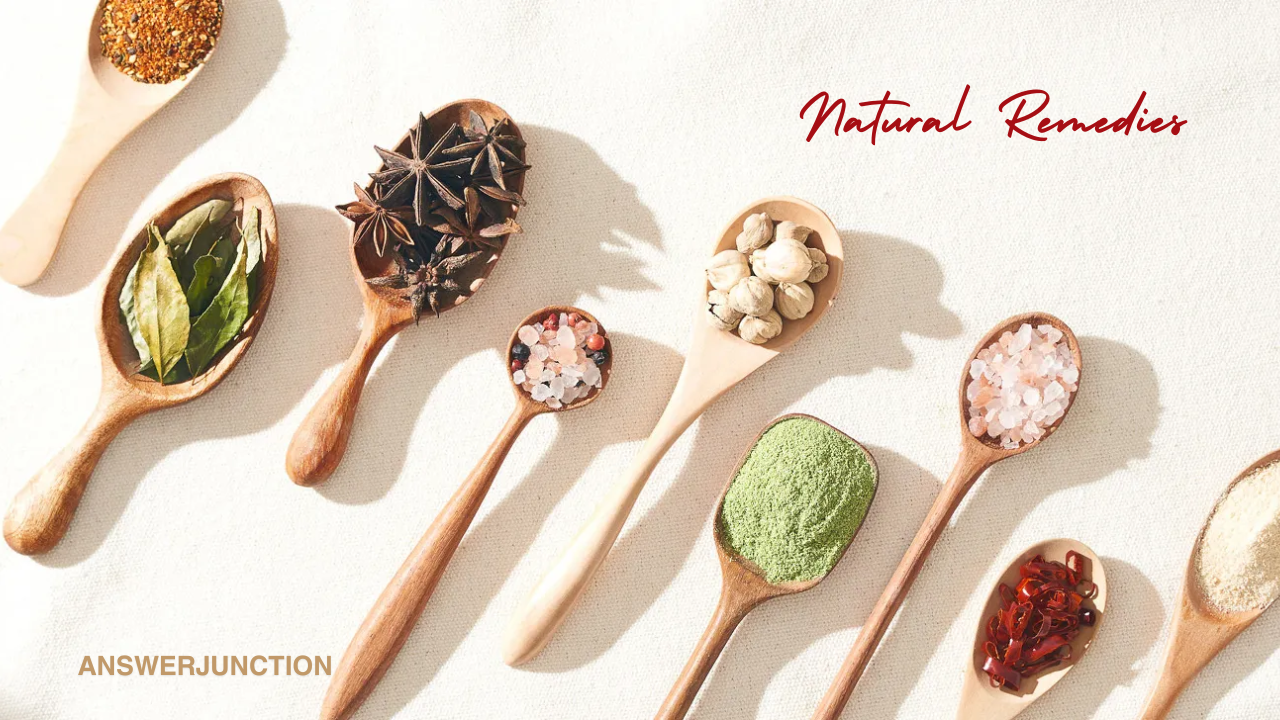Herbal remedies have been used for thousands of years to treat a wide range of ailments. As modern medicine advanced, natural remedies were often overlooked. However, in recent years, there has been a resurgence in the interest in herbal solutions for managing common health issues. Whether you’re looking to soothe a headache, calm an upset stomach, or alleviate a cold, numerous herbs have been known to offer relief. In this guide, we’ll explore some of the most effective herbal remedies for common ailments and how they can be safely used.
1. Headaches and Migraines
)
Peppermint
Peppermint has long been used to alleviate tension headaches. The menthol in peppermint helps to relax muscles and ease pain. It can be used as an essential oil applied topically to the temples or the back of the neck to provide relief. Additionally, drinking peppermint tea can help reduce headache symptoms, especially if they are related to digestive issues.
How to Use:
- Apply diluted peppermint essential oil to your temples and massage gently.
- Drink peppermint tea by steeping fresh or dried leaves in hot water for 5-10 minutes.
Feverfew
Feverfew is another herb traditionally used to treat migraines and headaches. It is believed to help prevent the frequency and severity of migraines when taken regularly. Feverfew contains compounds that help reduce inflammation and constrict blood vessels, which can help ease migraine pain.
How to Use:
- Take feverfew in capsule form or as a tincture. Consult with a healthcare provider for proper dosages.
- You can also drink feverfew tea, but it has a bitter taste that might not be appealing to everyone.
2. Digestive Issues
Ginger
Ginger is one of the most well-known herbal remedies for nausea, indigestion, and motion sickness. It helps to stimulate digestion, reduce bloating, and ease stomach cramps. Ginger contains gingerol, which has anti-inflammatory and antioxidant properties that make it effective for soothing various digestive complaints.
How to Use:
- Drink ginger tea made by steeping fresh ginger slices in hot water.
- Chew on a piece of fresh ginger or take ginger capsules if you prefer a more convenient option.
Chamomile
Chamomile is a gentle herb that is often used to calm the digestive system and ease symptoms of indigestion, gas, and colic. It has anti-inflammatory, antispasmodic, and relaxing properties that make it ideal for soothing an upset stomach.
How to Use:
- Drink chamomile tea before meals or whenever you feel digestive discomfort.
- You can also apply chamomile oil to the abdomen for a gentle massage to ease cramping.
Building Resilience: Strategies for Mental and Emotional Well-Being
3. Cold and Flu Relief
Echinacea
Echinacea is widely used to boost the immune system and help the body fight off infections. It is particularly effective in shortening the duration of the common cold and reducing the severity of symptoms. Echinacea works by stimulating the immune system and increasing the activity of white blood cells.
How to Use:
- Take echinacea supplements or drink echinacea tea at the first sign of a cold.
- Echinacea tinctures can also be taken as a preventive measure during cold and flu season.
Elderberry
Elderberry is another powerful immune-boosting herb that has been used for centuries to treat colds and flu. It is rich in antioxidants and vitamin C, making it effective in reducing inflammation and speeding up recovery from viral infections.
How to Use:
- Take elderberry syrup or supplements to help reduce cold and flu symptoms.
- Make elderberry tea by simmering dried elderberries in water for 20-30 minutes, then strain and sweeten with honey.
4. Insomnia and Sleep Issues

Valerian Root
Valerian root is one of the most popular herbal remedies for insomnia and sleep disorders. It acts as a natural sedative, promoting relaxation and reducing the time it takes to fall asleep. Valerian is particularly helpful for people who have difficulty sleeping due to anxiety or stress.
How to Use:
- Take valerian root capsules or tincture about 30 minutes before bed.
- Valerian tea can also be consumed for a milder effect, though it has a strong, earthy taste.
Lavender
Lavender is widely used for its calming and soothing properties, making it an excellent herbal remedy for sleep disturbances. The scent of lavender is known to reduce anxiety, improve sleep quality, and promote a sense of relaxation.
How to Use:
- Add a few drops of lavender essential oil to a diffuser or pillow before bed.
- Drink lavender tea made from dried lavender flowers to relax your mind and body.
5. Stress and Anxiety
Ashwagandha
Ashwagandha is an adaptogenic herb, meaning it helps the body adapt to stress and maintain balance. It has been used in Ayurvedic medicine for thousands of years to combat stress, anxiety, and fatigue. Ashwagandha helps regulate cortisol levels, which can reduce feelings of anxiety and improve overall well-being.
How to Use:
- Take ashwagandha in capsule form or as a powder mixed into smoothies or tea.
- Ashwagandha tinctures can also be taken to help reduce stress and improve mood.
Passionflower
Passionflower is another herb that is highly effective in treating anxiety and promoting relaxation. It works by increasing the levels of gamma-aminobutyric acid (GABA) in the brain, which helps to calm the nervous system and reduce anxiety.
How to Use:
- Take passionflower supplements or drink passionflower tea to ease anxiety.
- Passionflower tinctures can be used for more immediate effects.
Hydration Hacks: How to Drink More Water and Improve Your Health
6. Skin Irritations and Rashes
Aloe Vera
Aloe vera is one of the most versatile herbal remedies for skin conditions. Its cooling, anti-inflammatory properties make it an excellent remedy for burns, sunburn, rashes, and other skin irritations. Aloe vera gel is rich in vitamins, minerals, and enzymes that promote healing and soothe irritated skin.
How to Use:
- Apply fresh aloe vera gel directly to the affected area for relief from burns or rashes.
- Aloe vera creams and lotions can also be used to hydrate and heal dry, irritated skin.
Calendula
Calendula is another herb that is highly effective for treating skin irritations, including eczema, dermatitis, and minor wounds. Its anti-inflammatory and antimicrobial properties help to soothe inflamed skin and promote faster healing.
How to Use:
- Apply calendula cream or ointment to the affected area to reduce redness and irritation.
- Calendula tea can be used as a wash for minor skin wounds or rashes.
7. Joint Pain and Inflammation
Turmeric
Turmeric is well-known for its anti-inflammatory properties, making it a popular herbal remedy for joint pain, arthritis, and other inflammatory conditions. Curcumin, the active compound in turmeric, helps to reduce inflammation and alleviate pain associated with chronic conditions.
How to Use:
- Take turmeric supplements or capsules for joint pain relief.
- Add turmeric powder to your food or drink turmeric tea for additional anti-inflammatory benefits.
Boswellia
Boswellia, also known as Indian frankincense, is another potent anti-inflammatory herb that can help reduce joint pain and stiffness. It works by blocking the production of inflammatory enzymes in the body, making it an effective treatment for arthritis and other inflammatory conditions.
How to Use:
- Take boswellia supplements or use boswellia extract to alleviate joint pain.
- Boswellia creams can be applied directly to painful joints for localized relief.
8. Menstrual Cramps and PMS
Chasteberry
Chasteberry, also known as vitex, is commonly used to balance hormones and alleviate symptoms of PMS, including mood swings, breast tenderness, and menstrual cramps. It helps regulate the production of progesterone, which can reduce the severity of PMS symptoms.
How to Use:
- Take chaste berry supplements or tinctures regularly to help balance hormones.
- Chasteberry tea can also be consumed to alleviate menstrual discomfort.
Cinnamon
Cinnamon is a warming herb that can help reduce menstrual cramps by improving blood flow and relaxing uterine muscles. It also has anti-inflammatory properties that can ease the discomfort associated with menstruation.
How to Use:
- Drink cinnamon tea by steeping cinnamon sticks in hot water.
- Add cinnamon to your food or take it in supplement form to alleviate menstrual cramps.
Stay Active: Creative Ways to Incorporate Exercise into Your Daily Life
9. Sore Throat
Marshmallow Root
Marshmallow root is a soothing herb that has been traditionally used to treat sore throats and coughs. It contains mucilage, a thick, gel-like substance that coats and soothes the throat, reducing irritation and inflammation.
How to Use:
- Drink marshmallow root tea by steeping dried roots in hot water for 10-15 minutes.
- Marshmallow lozenges can also be used to soothe a sore throat.
Licorice Root
Liquorice root has natural anti-inflammatory and antimicrobial properties that make it an effective remedy for sore throats. It helps to reduce swelling, fight infection, and soothe irritated tissues in the throat.
How to Use:
- Drink liquorice root tea or take liquorice supplements to ease sore throat pain.
- Avoid using liquorice root for extended periods as it can have side effects like elevated blood pressure.
Herbal remedies offer a natural and effective way to treat many common ailments. Whether you are looking for relief from headaches, digestive issues, colds, or stress, herbs can provide gentle yet powerful healing. However, it’s important to remember that not all herbal remedies are suitable for everyone, and some may interact with medications. Always consult with a healthcare professional before starting any herbal treatments, especially if you are pregnant, breastfeeding, or have existing health conditions. By incorporating herbal solutions into your wellness routine, you can take a holistic approach to your health and well-being.




